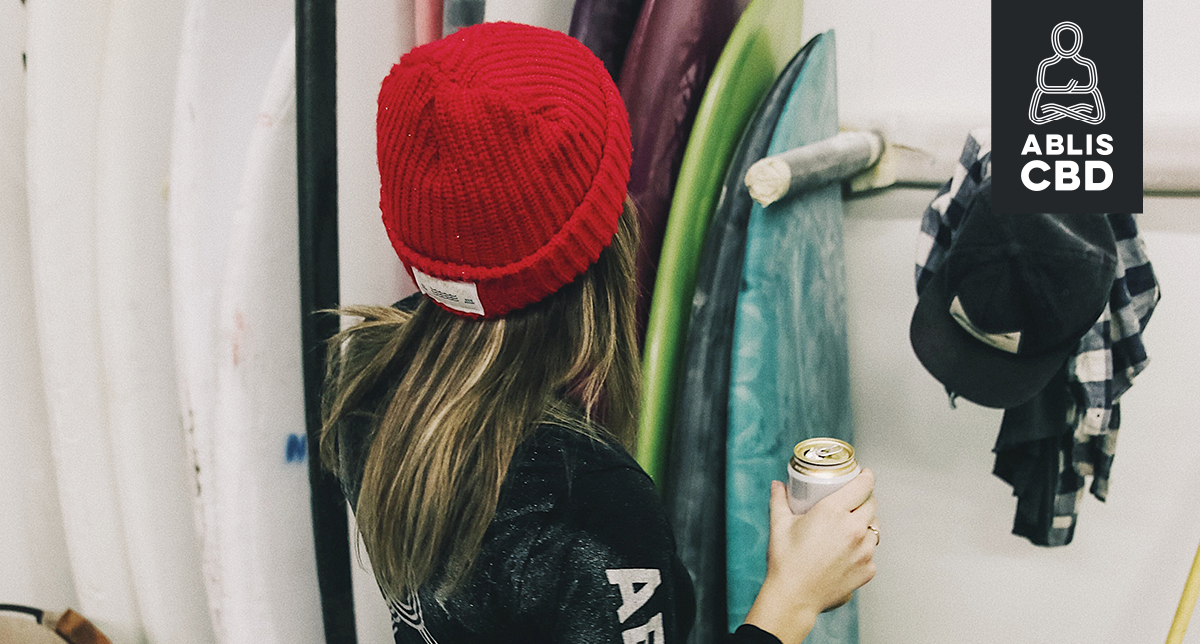Every day on my way to our production facility in Bend, Oregon, I drive past acres and acres of hemp fields. And when I look at those tall leafy plants, I’m reminded of where every single Ablis’ CBD product starts.
Many people associate CBD with marijuana, but instead, it comes from hemp. Ablis is part of a relatively young, but booming hemp industry.
Let’s Take It From The Top
Hemp was widely grown in America until 1937 when it was outlawed. To target marijuana, the federal government prohibited anyone from growing plants in the Cannabis genus.
That group of plants includes both marijuana and hemp, even though hemp contains only trace amounts of THC (the chemical compound that gets you high).
The federal government legalized hemp in 2018, but hemp has been legal in Oregon, where we make Ablis, since 2014. Legalization has opened up tons of new business opportunities. In less than two years, the U.S. hemp industry has grown to an estimated $4.71 billion!
The CBD for Ablis products from hemp, but CBD is just one of so many products that can be made from this incredible plant. We see hemp seed butter and even hemp seed milk, building materials for houses and cars, and even new biofuels! In fact, the U.S. government has identified over 25,000 uses for hemp.
It’s kind of crazy to think about!
Hemp And Sustainability
We love hemp’s versatility, and we’re glad to have a reliable, THC-free source for our CBD. But another thing we love about hemp is that it’s an incredibly sustainable crop.
One of the main reasons hemp is sustainable is that every part of the plant is usable, from the seed to the oil, to the flower, the leaves, and the stalk.
Here are a few other reasons why hemp is eco-friendly:
- It feeds the soil: Hemp returns higher amounts of nutrients to the ground during its lifecycle, making for naturally healthier soil. Many other crops do the opposite.
- It saves water: Hemp uses less water than many other crops, putting less strain on our precious natural resources.
- It’s super-efficient: Hemp has a high yield, and it grows quickly, meaning that farmers can produce a lot of it on a small plot of land.
- Hemp is tough: It’s naturally resistant to many pests, diseases, and fungus, so farmers don’t need to use excessive chemicals that can be harmful to our health.
As someone who studied sustainability in college, it’s great to know that we’re part of an eco-friendly industry. And I know everyone on the Ablis team values that too.
How We Use Hemp
All of Ablis’ CBD comes from hemp.
There are many different forms of CBD that can be produced from hemp. And the process looks different depending on the end product. The method depends on the intended use of the extraction, environmental factors, and of course, money.
We use hemp-derived, organic CBD isolate. We currently source our hemp locally from an advanced local extraction facility as well as one of the leading water soluble extract producers in the country. It’s 99% pure and comes in a powdered form, which is an excellent fit for our beverage-making process. Like all forms of hemp-derived CBD, it starts with extracting oil from the plant’s flower. This oil is rich in CBD, but it also contains other naturally occurring chemicals and fats that need to be filtered out.
Once hemp oil is concentrated into pure CBD, we use varying forms of isolate depending on what the unique products call for, usually resulting in something that looks similar to the rock candy you make from sugar water.
Usually, at this time of year, we would be gearing up for the Oregon Hemp Convention. It’s a premiere industry event that showcases all the facets of the market including up-and-coming products, scientific advancements, and unique business opportunities. It’s also a great way to keep business local and improve our local hemp industry, something Ablis is always aiming for. Sadly, it’s been postponed this year, but the industry is still going strong.
Now you know that when you enjoy Ablis, you’re supporting a growing industry that is just getting started and beginning to boom!
